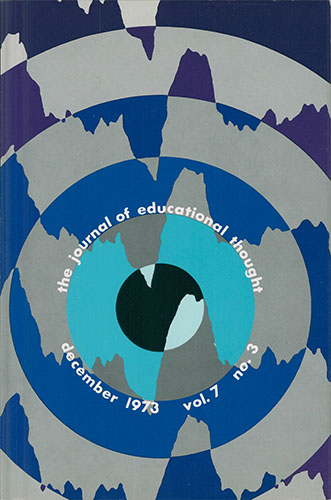Epistemologies and Curriculum Models
DOI:
https://doi.org/10.55016/ojs/jet.v7i3.43719Abstract
Curriculum designers tend (a) to reflect partisan epistemological stances and (b) to neglect the value problem, in the course of claiming professional neutrality. This article conducts a 'conceptual experiment' to discover what curriculum proposals might plausibly follow from each of five distinctive epistemologies. A comparison with actual theories in twentieth century educational writing suggests that restrictive normative epistemologies have hampered curriculum development. It is concluded that (a) an ordinary language formalism is the most comprehensive and neutral base available, and (b) the value problem cannot be evaded thereby.
Downloads
Published
Issue
Section
License
The Journal of Educational Thought retains first publication rights for all articles. The Journal grants reproduction rights for noncommercial educational purposes with the provision that full acknowledgement of the work’s source be noted on each copy. The Journal will redirect to the appropriate authors any inquiries for further commercial publication of individual articles. All authors wishing to publish in JET will be asked to fill in and sign a Consent to Publish and Transfer of Copyright agreement.
Authors must affirm that any submission to JET has not been and will not be published or submitted elsewhere while under considration by JET.

